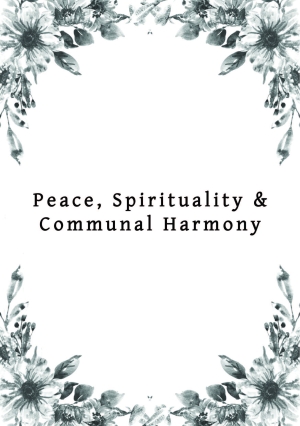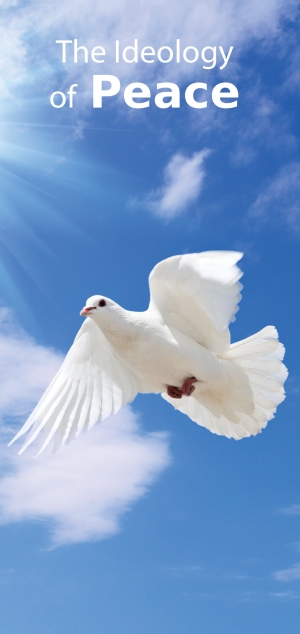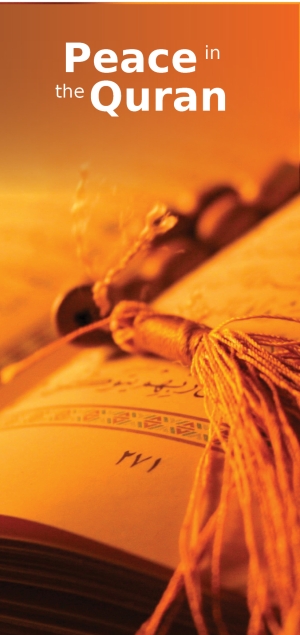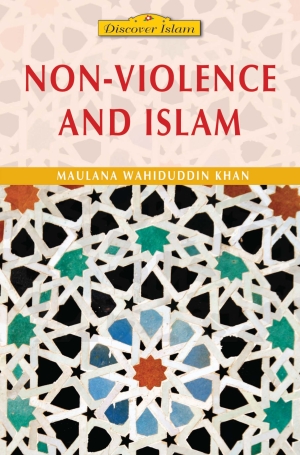Contrary to the common misconception that Islam denies religious freedom to others, Islam upholds religious freedom for everyone. Religious freedom is a fundamental human right whose violation has caused conflicts, wars, and bloodshed in ancient and modern societies. For the first time in human history, the Quran declared: “There shall be no compulsion in religion.” (2: 256). It further states clearly, “You have your religion, and I have mine.” (109: 6)
The principle that we obtain from the above verses of the Quran is generally referred to as religious freedom in today’s context. Given this prohibition of compulsion, all Islamic jurists hold that forcible conversion is null and void under all circumstances in Islam. The principle of non-coercion mentioned in the Quran has not been confined to religious freedom alone. It has been extensively elaborated upon and widely applied to all social, cultural, and political spheres of society. It has led to a new culture in which individuals enjoy the freedom of expression, dissent and criticism without fear or restriction.
Featured Articles
Featured Videos
FAQs
According to Islam, man has been given free will, while every other animate or inanimate object is subservient to God’s will. Everything, save man, must follow the predetermined path laid down by God, while Islam requires man to make his own quest for truth. He should be fully conscious of this and impose upon himself a religious duty, to find that true nobility of character. External commands are for robots, not for fully mature human beings. This has been given in the Quran in these words:
‘Say, the truth is from your Lord. Let him who will believe it, and let him who will reject it.’ (18:29)
As per the above verse, man must accept or reject truth by his own decision, and not by imposition. The resulting belief is valid since it is the outcome of one’s own conscious decision.
Source: Spirit of Islam December 2018
In 1948 the United Nations gave the world its Universal Declaration of Human Rights, a universal charter for individuals as a matter of fundamental human dignity. Article 18 of this declaration reads as follows: “Everyone has the right of freedom of thought, conscience and religion; this right includes freedom to change his religion or belief, and freedom, either alone or in community with others and in public or private, to manifest his religion or belief in teaching, practice, worship and observance.”
These ideas are exactly in accordance with the principles of Islamic teaching given in the following words of the Quran:
‘There is no compulsion in religion.’ (2:256)
This verse expresses a fundamental principle of Islam. If a person believes in the truth of something, he has every right to proclaim it, provided he supports it with logical arguments. His task is complete once he has described his belief clearly. But he has no right to compel others to accept it.
Islam upholds religious freedom for everyone. Religious freedom is a basic human right whose violation has caused conflicts, wars, and bloodshed in both ancient and modern societies. The Quran, therefore, declared for the first time in human history:
“There shall be no compulsion in religion.” (2:256)
The Quran, further, states clearly, “You have your religion and I have mine.” (109:6) The principle that we obtain from the above verses is generally referred to, in today’s context, as religious freedom. In view of this prohibition of compulsion, all Islamic jurists without any exception hold that any attempt to coerce a person to accept Islam is a grievous sin.
The principle of non-coercion mentioned in the Quran (2:256) has not been confined to religious freedom alone. Rather, it has been extensively elaborated upon and widely applied to all social, cultural, and political spheres of society. This has led to the development of a new culture in which individuals enjoy freedom of expression, dissent, and criticism without any fear or restriction. The following example may suffice to explain to what extent this essential human right was observed in early Muslim societies.
Once Caliph Umar came to a well of the Banu al-Harith where he met an outspoken person named Muhammad ibn Maslamah. “How do you find me?” he asked Muhammad, “By God, I find you just as I would like you to be and just as it would please any well-wisher to see you. You are good at accumulating money, I see, but you keep your hands clean of it yourself, distributing it equitably to others.” “But” went on Muhammad ibn Maslamah, “If you adopt a crooked course, we will straighten you, just as we straighten swords by placing them in a vice.” At these aggressively critical words, Umar, the second Muslim Caliph, exclaimed:
“Praise be to God, who has put me among a people who will straighten me when I become crooked.” (Kanz al-Ummal)
From this, we can understand the importance Islam gives to religious freedom.
Source: The True Face of Islam













